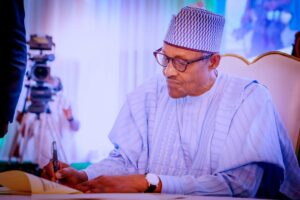MINIMUM WAGE: See New Federal Government Offers that Labour Rejects and Reduce its demands
MINIMUM WAGE: See New Federal Government Offers that Labour Rejects and Reduce its demands
After extensive discussions yesterday, the federal government and organized labour failed to reach a consensus on the new national minimum wage. The federal government increased its proposal from N60,000 to N62,000, while labour reduced its demand from N494,000 to N250,000.
The tripartite committee, formed to unify the decisions and propose an agreeable figure, emphasized the need for an increase in the national minimum wage, citing social, economic, and political factors, as well as international standards. The committee suggested that President Bola Tinubu consider a new minimum wage of N62,000 per month, supported by the government and the Organised Private Sector (OPS), while labour maintained a demand for N250,000 per month.
Imo State Governor Hope Uzodinma announced that the committee would submit its recommendations to President Tinubu. Trade Union Congress (TUC) President Festus Osifo stressed the importance of wages reflecting the cost of living.
Negotiations began after President Tinubu instructed the Finance Minister to present a new minimum wage plan. Initial proposals from the government ranged from N48,000 to N60,000, which labour deemed insufficient. Before recent strikes, the Nigeria Labour Congress (NLC) and TUC reduced their demands to N494,000, citing economic conditions and the needs of Nigerian families. Labour leaders even walked out of negotiations due to unsatisfactory government offers.
The Nigeria Governors’ Forum (NGF) warned that a N60,000 minimum wage would be unsustainable, pushing many states into financial distress and hindering their ability to fund essential services and development projects. NGF acting director of media, Hajiya Halimah Salihu Ahmed, stated that while governors sympathize with labour’s demands, the proposed figure is unfeasible given current financial constraints.
The NGF argued that paying a N60,000 minimum wage would consume federal allocations, leaving no funds for critical infrastructure, healthcare, and education. Some states might even need to borrow to meet payroll, which they believe is not in the country’s best interest.
The organized private sector also expressed discontent, feeling excluded from the negotiations. Despite this, a federal government negotiator indicated readiness to propose up to N65,000, reflecting President Tinubu’s commitment to a quick resolution.
The labour push for wage reassessment is grounded in the National Minimum Wage Act of 2019, mandating periodic reviews. The last adjustment was in 2019, raising the wage from N18,000 to N30,000.
In January 2024, President Tinubu appointed a 37-member panel, led by Vice President Kashim Shettima, to recommend a new minimum wage. This panel includes federal, state, private sector, and labour representatives, reflecting diverse regional interests.
Nigeria’s recent economic history has seen fluctuations, notably a recession in 2016 and modest growth from 2017 to 2019, followed by a downturn in 2020 due to the COVID-19 pandemic. The removal of fuel subsidies and a managed exchange rate float further strained the economy, causing inflation to rise and the naira to devalue significantly.
States now face challenges in addressing the wage increase demands while maintaining fiscal sustainability. Labour argues that rising living costs necessitate higher wages. FAAC data shows that 11 states, including Zamfara with a significant deficit, are unable to meet the N60,000 minimum wage due to their financial limitations.
In summary, while the federal government has proposed N62,000, organized labour insists on N250,000, reflecting the broader debate over economic realities and the need for a sustainable and fair minimum wage agreement.
TRENDING SONGS
 Prince Thomas Ogungbangbe, PhD, Mourns Former President Muhammadu Buhari
Prince Thomas Ogungbangbe, PhD, Mourns Former President Muhammadu Buhari
 The Deceptive Charm: Why Some Politicians Embrace a False Humility During Campaigns
The Deceptive Charm: Why Some Politicians Embrace a False Humility During Campaigns
 Viral video: SS1 Student Sparks Outrage After Allegedly Acquiring Mercedes-Benz — Father Demands Return, Friends Disagree
Viral video: SS1 Student Sparks Outrage After Allegedly Acquiring Mercedes-Benz — Father Demands Return, Friends Disagree
 Family Curse: No Woman In My Family Can Keep Husband Alive Past Their 35th Birthday, Lady Reveals
Family Curse: No Woman In My Family Can Keep Husband Alive Past Their 35th Birthday, Lady Reveals
 Video: Man Sitting Behind Tinubu During His Speech At BRICS Meeting Trends Online
Video: Man Sitting Behind Tinubu During His Speech At BRICS Meeting Trends Online
 Oga Sabinus-Sabinus is Completed Finished(Comedy Video) Download
Oga Sabinus-Sabinus is Completed Finished(Comedy Video) Download
 Funny Video: Senate vs a Proud Professor
Funny Video: Senate vs a Proud Professor
 JUST IN: See the Numbers of People Road Accident Killed in Lagos
JUST IN: See the Numbers of People Road Accident Killed in Lagos
Share this post with your friends on ![]()













